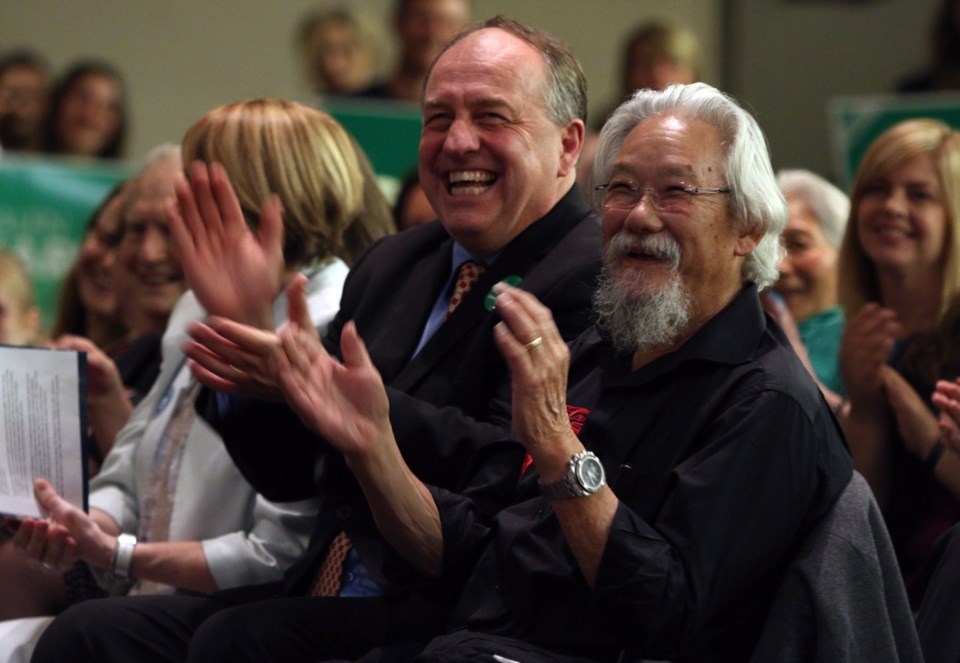Renters will get a $400 annual grant if the NDP wins the B.C. election on May 9, John Horgan promised Wednesday.
The NDP leader pledged to introduce a household “renter’s credit” as part of his commitment to making life more affordable for people struggling under higher fees and taxes.
“Help is on the way,” he said. “If homeowners can have a homeowner grant, renters should be able to have a grant as well. It’s going to mean that costs will go down for individuals.”
>> MORE B.C. ELECTION COVERAGE
Horgan said the grant, coupled with his earlier promise to freeze B.C. Hydro rates, would give renters “a little bit of hope that life can be a little bit better if we change the government of British Columbia.”
Liberal Leader Christy Clark immediately criticized the NDP plan, noting that a millionaire renting a downtown Vancouver penthouse would qualify for the same $400 subsidy as every other household.
“That isn’t right,” she said. “We shouldn’t be redistributing our tax money to the very rich. We should be making sure that we spend our resources supporting people who are having trouble staying in their homes.”
Clark said her government already provides rental subsidies to 104,000 people. “There aren’t any millionaires living in downtown Vancouver getting that subsidy,” she said. “It’s all for people who need it.”
But Horgan said the NDP opted for a universal program, rather than one that is means-tested, in order to make things easier for renters.
“We don’t want people to have to struggle with the Income Tax Act,” he told reporters in Vancouver.
“We want renters to know that if they’re renting a place in the Lower Mainland, on the Island, in the Interior — wherever they may be — they have access to this grant.”
Greater Victoria has among the highest rents in the country and one of the lowest vacancy rates at 0.5 per cent, according to the Canadian Mortgage and Housing Corp.
Tom Davidoff of University of B.C.’s Sauder School of Business called the proposal “progressive” and dismissed as “ridiculous” Clark’s criticism that it will benefit rich renters.
“The homeowner’s grant is not income tested, and on average renters have lower incomes and much less wealth than homeowners,” he said.
“Of course it’s not perfect, but that particular criticism is off base.”
Horgan also promised to strengthen the Residential Tenancy Branch so that it works for renters, “not just landlords.”
Clark continues to warn that the NDP’s promises would break the provincial budget, but Horgan said the total costs will be included in the party’s full platform, slated for release today.
“I think our plan is responsible,” he said. “Our plan is focused on people.”
Clark began Wednesday at Burnaby’s General Fusion Labs, where she touted the success of B.C.’s technology sector, which employs more than 106,000 people at over 10,000 companies.
She said a re-elected Liberal government would increase investment in the sector, ensure that B.C. tech companies are in line for government contracts, teach coding skills in Grades 6 through 9, and produce hundreds of new graduates in science, technology, engineering and math.
“British Columbia can be the new Silicon Valley,” she said. “We need to be because we want our kids to have great jobs.”
Horgan and B.C. Green Party Leader Andrew Weaver both accused Clark of trying to distract voters from her 2013 promise of a massive liquefied natural gas industry that never materialized.
“I think Christy Clark’s trying to pretend that LNG never happened, and now she developed the Internet and computers,” Horgan quipped.
Weaver said the tech sector is having trouble attracting employees because affordability has decreased.
“The B.C. tech sector is doing well not because of the B.C. Liberals, but in spite of them,” he said in an interview.
Earlier, Weaver said a Green government will tackle B.C.’s growing inequality problem by increasing disability, income assistance and shelter allowance rates by 10 per cent effective Oct. 1. The rates would rise to 50 per cent above current levels by April 1, 2020, he said.
“We have recognized that over the last decade or so, Liberal policies have been essentially mean-spirited,” Weaver said. “They’ve let the most vulnerable in our society fall by the wayside.
“Their idea of a strong economy is a strong economy for their corporate donors and a strong economy for the wealthy.”



